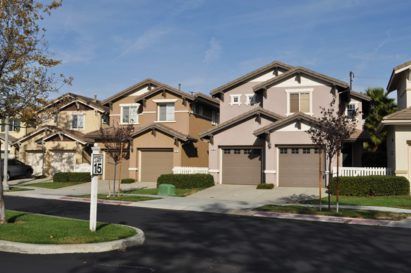Are special interests blocking housing reforms? Or is public opposition?

The belief that California has a profound housing crisis took hold in the state’s media and political establishments in recent years after Census Bureau statistics showed the Golden State had the highest effective rate of poverty once cost of living was included.
The view was amplified by stories about four-hour commutes forced by housing costs and about shocking numbers of poor college students who struggled to pay for food.
That’s why the decision last week by state Senate Appropriations Chairman Anthony Portantino, D-La Cañada Flintridge, to kill Senate Bill 50 – the latest attempt to spur housing construction by limiting local control of approvals
– came as a surprise to many. That included the bill’s sponsor, Sen. Scott Wiener, D-San Francisco. His push to ease rules to allow four-to-five-story apartment buildings near public transit centers and to allow construction of such units in many zones previously reserved for single-family homes had won support from not just developers but construction labor unions, several large-city Democratic mayors and some activist groups. Many were skeptics of Wiener’s and Gov. Jerry Brown’s previous attempts to limit local control.
Stories about Portantino’s decision focused on the fact that leaders of cities in his district, starting with Pasadena, had been vociferous opponents of Senate Bill 50. Reports also focused on the formidable influence of environmental groups, which prefer strict zoning rules to give them more clout to block development.
These arguments are common. In August 2016, when Brown’s attempt to sharply streamline the approval process for housing projects died in the Legislature, Shamus Roller, executive director of Housing California, blasted “the political gamesmanship of powerful interests.”
Californians ‘must be convinced of benefits’ of adding housing
But another view is that then-state Legislative Analyst Mac Taylor knew what he was talking about in March 2017 when he issued a report on the failure of local governments to meet housing mandates that said major change was unlikely “unless Californians are convinced of the benefits of more home building.” Instead of seeing the failure of housing reforms as a result of special-interest machinations, Taylor argued that elected leaders who backed such measures hadn’t cultivated the public support necessary to enact major changes.
Taylor’s thesis was supported by a USC Dornsife/Los Angeles Times poll of Californians released in October that found little belief that the housing crisis was due to a lack of building. It was the sixth-most cited reason, falling far behind the top two: the lack of rent control in much of the state and inadequate “affordable housing” programs. Two-thirds of those surveyed supported local control of housing approvals even if cities or counties weren’t meeting state mandates for new housing construction.
Still, Wiener said he wasn’t daunted by Portantino’s decision. He said he would bring another housing reform measure to the state Senate in 2020. The former San Francisco supervisor, a Harvard law graduate, also said he thought Senate Bill 50 had a chance of being resurrected this summer, even though appropriation chairs of the Senate and Assembly have a long history of making their decisions stick.
“We’re either serious about solving this crisis, or we aren’t,” he told reporters in Sacramento last week. “At some point, we will need to make the hard political choices necessary for California to have a bright housing future.”
Chris Reed
Chris Reed is a regular contributor to Cal Watchdog. Reed is an editorial writer for U-T San Diego. Before joining the U-T in July 2005, he was the opinion-page columns editor and wrote the featured weekly Unspin column for The Orange County Register. Reed was on the national board of the Association of Opinion Page Editors from 2003-2005. From 2000 to 2005, Reed made more than 100 appearances as a featured news analyst on Los Angeles-area National Public Radio affiliate KPCC-FM. From 1990 to 1998, Reed was an editor, metro columnist and film critic at the Inland Valley Daily Bulletin in Ontario. Reed has a political science degree from the University of Hawaii (Hilo campus), where he edited the student newspaper, the Vulcan News, his senior year. He is on Twitter: @chrisreed99.
Related Articles
Bridge woes compound California infrastructure troubles
Dams aren’t the only part of California infrastructure on the hot seat. Following a big-ticket Sacramento request for federal
State senator wants to give CA homeless a ‘right to shelter’
Democratic lawmakers are already gearing up for brawls with Gov.-elect Gavin Newsom over costly efforts to expand state government with
Green Energy Bill Headed to Gov.
MARCH 30, 2011 By KATY GRIMES A bill that would increase California’s energy costs by $7 billion finally made it




